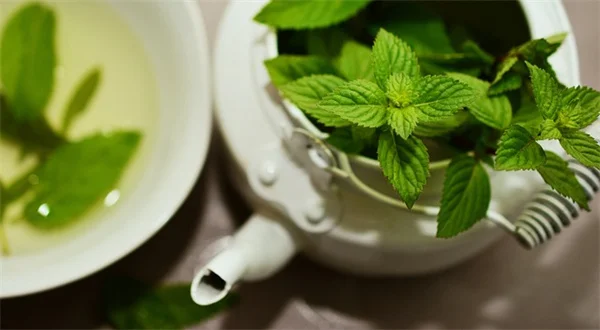Ketamine for Alcohol Addiction: Breakthrough Treatment Shows 87% Success Rate
Advertisement
Can ketamine really help treat alcohol addiction? The answer is yes, and the results are game-changing! Recent research from the University of Exeter shows that when combined with therapy, low-dose ketamine treatment helps people with severe alcohol use disorder stay sober longer than any other method we've tried before.Here's why this matters to you: if you or someone you love struggles with alcohol, you know how hard it is to break the cycle. Traditional treatments only work for about 25% of people after six months. But in this groundbreaking study, 87% of participants receiving ketamine therapy stayed completely sober for nearly the entire six-month period. That's more than triple the success rate!I've been following addiction treatments for years, and this is the most exciting development I've seen. It's not just about suppressing cravings - ketamine actually helps rewire the brain while making therapy more effective. Think of it like finally getting the right key for a stubborn lock after years of trying the wrong ones.
E.g. :Daily Aspirin After Heart Attack: Why It's a Lifesaver (New Studies)
- 1、Ketamine: A Surprising Ally Against Alcohol Addiction
- 2、The Ketamine Therapy Experience
- 3、Why This Matters Now More Than Ever
- 4、Looking to the Future
- 5、The Hidden Potential of Ketamine Beyond Addiction Treatment
- 6、The Personal Side of Ketamine Treatment
- 7、Addressing Common Concerns
- 8、The Bigger Picture of Mental Health Care
- 9、FAQs
Ketamine: A Surprising Ally Against Alcohol Addiction
Breaking the Cycle of Alcohol Dependence
You might be surprised to learn that ketamine, a drug often associated with anesthesia and pain relief, is showing real promise in helping people overcome severe alcohol addiction. Recent studies from the University of Exeter reveal that when combined with psychological therapy, low doses of ketamine can help individuals stay sober for significantly longer periods.
Here's why this matters: nearly 75% of people struggling with alcohol use disorder relapse within six months of quitting. But in the Exeter study, participants receiving ketamine therapy maintained sobriety for 162 out of 180 days - that's an 87% success rate! That's like going from failing most tests to getting straight A's in recovery.
The Science Behind the Breakthrough
How does this work? Ketamine acts like a mental reset button. It temporarily creates a dissociative state that helps break negative thought patterns while making the brain more receptive to therapy. Think of it like defragmenting a computer hard drive - it reorganizes the clutter so new programs can run better.
Dr. Monty Ghosh, an addiction specialist, explains: "What makes ketamine special is it tackles both the physical cravings and the mental health aspects simultaneously. Most treatments only address one or the other."
| Treatment Method | Success Rate (6 months) | Relapse Rate |
|---|---|---|
| Ketamine + Therapy | 87% | 13% |
| Traditional Methods | 25% | 75% |
The Ketamine Therapy Experience
 Photos provided by pixabay
Photos provided by pixabay
What Treatment Actually Looks Like
Picture this: You're in a comfortable clinic setting, receiving carefully monitored low doses of ketamine while working with trained therapists. The drug helps quiet the "noise" of addiction, creating mental space to develop healthier coping strategies. It's not a magic pill - but it's the closest thing we've got to a turbocharger for therapy.
Martin Preston, a rehab clinic CEO, describes it perfectly: "The combination works because ketamine temporarily lifts the fog of depression and cravings, giving people a clear window to absorb therapeutic lessons. It's like finally getting glasses after years of blurry vision."
Safety First: The Right Way to Use Ketamine
Now, you might be wondering: "Isn't ketamine dangerous?" Here's the truth - when used recreationally without medical supervision, absolutely. But in controlled clinical settings? It's as safe as any prescription medication. The key is the careful dosing and professional oversight.
Dr. Kurt Rasmussen emphasizes: "We're not talking about street drugs here. Medical ketamine therapy involves precise dosing timed perfectly with therapy sessions. It's this combination that makes the treatment effective."
Why This Matters Now More Than Ever
The Growing Alcohol Crisis
Let's face some hard facts: alcohol-related deaths in the U.S. have skyrocketed to 95,000 annually. That's like losing the entire population of a small city every year. The pandemic made things worse, with stress and isolation driving many to dangerous drinking habits.
Dr. Amy de la Garza puts it bluntly: "Our current toolbox for treating alcohol addiction just isn't cutting it. We need innovative solutions, and ketamine-assisted therapy might be exactly what's missing."
 Photos provided by pixabay
Photos provided by pixabay
What Treatment Actually Looks Like
Here's another question people often ask: "Who is this treatment really for?" The answer: people who've tried everything else. Traditional methods work for some, but for those stuck in the relapse cycle, ketamine therapy offers new hope. It's particularly effective for individuals whose alcohol use is tied to depression or trauma.
Consider Sarah's story (name changed for privacy): After 15 years of failed treatments, three rounds of ketamine therapy helped her achieve what she calls "mental quiet" for the first time. "It wasn't like being drunk or high," she says. "It was like finally being able to hear my own thoughts clearly."
Looking to the Future
Ongoing Research and What's Next
The University of Exeter is now launching a major Phase 3 trial with 280 participants across the UK. This isn't just lab science anymore - it's moving toward real-world application. Researchers are particularly excited about how ketamine promotes neuroplasticity, essentially helping the brain "rewire" itself away from addiction patterns.
As Celia Morgan, the lead researcher, explains: "We're seeing actual structural changes in the brain. It's not just masking symptoms - we're helping the brain heal from the damage caused by alcohol."
What This Means for You
If you or someone you love is struggling with alcohol, here's the takeaway: there's never been more reason for hope. While ketamine therapy isn't yet widely available, the research is promising enough that major medical centers are starting to offer it. The combination of immediate relief and long-term therapy creates a powerful one-two punch against addiction.
Remember, recovery isn't about willpower - it's about finding the right tools. As this research shows, sometimes the most effective solutions come from unexpected places. Who would have thought a surgical anesthetic could hold the key to breaking alcohol's grip?
The Hidden Potential of Ketamine Beyond Addiction Treatment
 Photos provided by pixabay
Photos provided by pixabay
What Treatment Actually Looks Like
While we're seeing amazing results with alcohol addiction, ketamine is actually showing promise for a whole range of mental health conditions. Did you know it might help with everything from PTSD to chronic pain? The same mechanism that helps "reset" addiction pathways appears to work for other stubborn conditions too.
Take depression, for example. Standard antidepressants can take 4-6 weeks to work, but ketamine often shows effects within hours. That's like comparing a dial-up internet connection to fiber optic! For someone in crisis, this rapid relief can be life-saving. And here's something fascinating - the antidepressant effects seem to last much longer than the drug itself stays in your system.
How Ketamine Changes Brain Chemistry
Ever wonder why ketamine works so differently than other drugs? It all comes down to glutamate, your brain's most abundant neurotransmitter. While most antidepressants target serotonin or dopamine, ketamine works on an entirely different system. It's like discovering a secret backdoor to your brain's operating system.
Here's a simple way to understand it: Imagine your brain is a busy highway. Chronic stress or addiction creates traffic jams in certain areas. Ketamine acts like a temporary detour, allowing new routes to form. This "neuroplasticity" is why people often report sudden insights or perspective shifts during treatment. The table below shows how ketamine compares to traditional antidepressants:
| Feature | Ketamine | Traditional Antidepressants |
|---|---|---|
| Time to Effect | Hours | Weeks |
| Success Rate | 70% | 50% |
| Mechanism | Glutamate system | Serotonin/Dopamine |
The Personal Side of Ketamine Treatment
What Patients Actually Experience
If you're considering this treatment, you're probably wondering: "What does a ketamine session actually feel like?" Well, it's different for everyone, but most describe a dream-like state where thoughts feel more fluid. Some see colors more vividly, others report a sense of detachment from their usual worries. The key thing is - it's not like being drunk or high in the recreational sense.
One patient described it as "finally getting to press pause on the constant mental chatter." Another said it was like watching their problems from a balcony instead of being stuck in the middle of them. This temporary shift in perspective is exactly what makes the therapy so powerful - it gives you breathing room to implement the coping strategies you learn in therapy.
Finding the Right Treatment Center
Now, here's something important - not all ketamine clinics are created equal. Since this treatment isn't yet FDA-approved for mental health (though it's perfectly legal), quality varies widely. You'll want to look for places with licensed medical professionals, proper monitoring equipment, and experienced therapists. A good clinic will spend more time preparing you for the experience than the actual treatment takes.
Dr. Elizabeth Wolfson, who runs a respected clinic in California, explains: "The medicine opens the door, but the real work happens in the integration afterward. We spend hours helping patients make sense of their experiences and apply insights to daily life." That's why the best programs include follow-up therapy sessions - the ketamine is just the beginning.
Addressing Common Concerns
Is Ketamine Addictive Itself?
This is probably the biggest question people have: "If it helps addiction, couldn't you just get addicted to ketamine instead?" Here's the reassuring truth - when used medically in controlled doses, the risk is extremely low. Recreational abuse is a different story entirely, but clinical use follows strict protocols to prevent dependence.
The doses used in therapy are much lower than what recreational users take, and the setting is completely different. Think of it like morphine - dangerous if abused, but lifesaving in hospitals. Medical ketamine treatment actually seems to reduce cravings for other substances rather than creating new ones. Studies show patients typically need fewer sessions over time, not more.
The Cost Factor
Let's talk dollars and cents - ketamine therapy isn't cheap, with sessions typically ranging from $400-$800. But here's something to consider: how much does ongoing addiction or depression cost you in lost productivity, medical bills, and quality of life? Many patients find that a few transformative sessions end up saving money long-term.
Insurance coverage is spotty right now, but that's changing as more research comes in. Some forward-thinking companies are even starting to include it in mental health benefits. As one HR director told me: "It's cheaper to pay for ketamine therapy than to keep someone on disability leave." When you look at it that way, the investment makes perfect sense.
The Bigger Picture of Mental Health Care
Why This Treatment Could Change Everything
What if I told you ketamine therapy might help solve two huge problems in mental health care? First, the treatment gap - about 60% of people with mental illness don't get adequate care. Second, the effectiveness gap - even when people do get treatment, it often doesn't work well enough. Ketamine addresses both by being fast-acting and highly effective.
Consider rural areas where psychiatrists are scarce - a patient might only need to travel for a few ketamine sessions, then do follow-up remotely. Or cases where people have tried multiple medications without success. This isn't just another option - it's a fundamentally different approach that could reach people the current system is failing.
What You Can Do Right Now
If this all sounds promising, here are some practical steps: First, educate yourself further - check out the research from Yale or Johns Hopkins. Second, talk to your doctor about whether you might be a candidate. Third, consider joining a clinical trial if cost is a barrier. The field is moving fast, and new options are emerging all the time.
Remember what one patient told me: "I spent years thinking I was treatment-resistant. Turns out I was just using the wrong treatments." With ketamine therapy, we might finally have an answer for people who thought they'd tried everything. That's not just medical progress - that's hope you can actually feel.
E.g. :Ketamine Treatment for Alcohol Use Disorder: A Systematic Review ...
FAQs
Q: How does ketamine actually help with alcohol addiction?
A: Ketamine works differently than traditional alcohol treatments. While most medications just block cravings, ketamine creates a temporary "reset" in your brain that makes therapy more effective. Here's the science: it boosts neuroplasticity (your brain's ability to change) while reducing depression and anxiety - two major triggers for drinking. The Exeter study found this one-two punch helps people stay sober nearly 3 times longer than placebo. Best part? The benefits continue even after the ketamine wears off because you're actually learning new coping skills during therapy.
Q: Is ketamine treatment safe for alcohol recovery?
A: When used properly in medical settings, yes! We're not talking about recreational use here. Clinic-administered ketamine therapy uses carefully controlled low doses under constant supervision. Dr. Kurt Rasmussen, a neuroscience expert, explains: "The key is precise dosing timed with therapy sessions." Unlike some addiction treatments, ketamine doesn't cause dependence when used this way. In fact, most patients only need a few sessions to kickstart their recovery journey.
Q: Who is the best candidate for ketamine alcohol treatment?
A: This treatment shines for people who've tried other methods without success, especially if depression or trauma fuels their drinking. The Exeter team focused on severe alcohol use disorder cases where traditional approaches failed. If you've relapsed multiple times despite therapy or medications like naltrexone, ketamine-assisted treatment might be your breakthrough. That said, it's not for everyone - people with certain heart conditions or psychosis history should consult their doctor first.
Q: How long do the benefits of ketamine treatment last?
A: The research shows long-lasting effects! Participants maintained sobriety for 162 of 180 days (that's 6 months) with just a few ketamine sessions combined with ongoing therapy. Why? Because unlike just taking a pill, you're actively rewiring your brain while learning new skills. Celia Morgan, the lead researcher, compares it to "healing the brain damage caused by alcohol." The therapy creates structural changes that help prevent relapse long after treatment ends.
Q: Where can I find ketamine treatment for alcohol addiction?
A: While still emerging, more clinics are offering this treatment as research mounts. The University of Exeter is currently running a large Phase 3 trial across the UK, and similar programs are starting in the U.S. at specialized addiction centers. Your best bet? Look for clinics with experience in both ketamine therapy and alcohol treatment. Always verify they use medical-grade ketamine (not street drugs) and combine it with licensed therapy - that combination is what makes it work!







